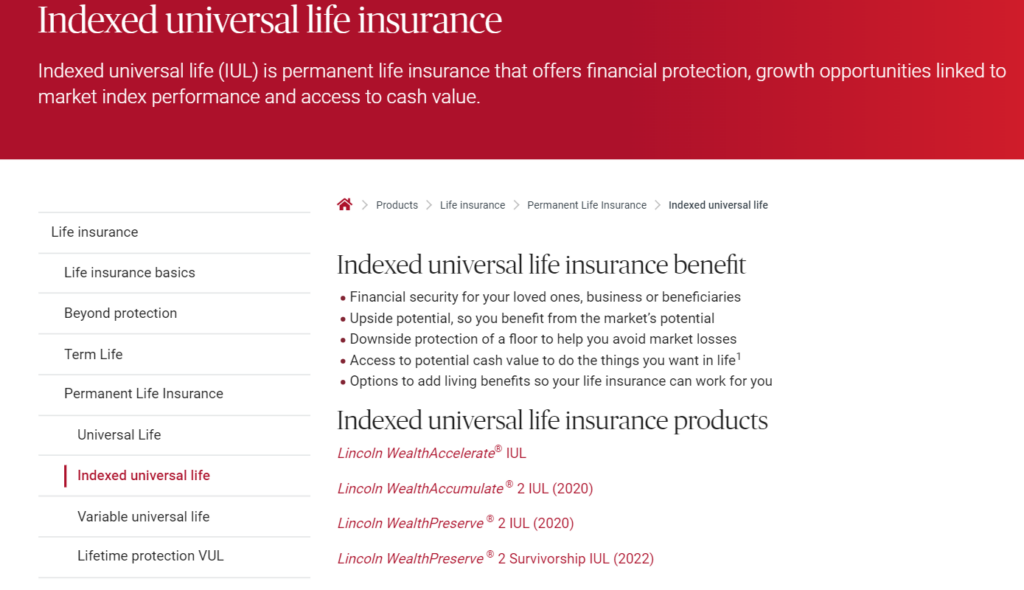All Categories
Featured
Table of Contents
Do they compare the IUL to something like the Lead Total Amount Stock Market Fund Admiral Shares with no load, an expenditure proportion (ER) of 5 basis points, a turn over proportion of 4.3%, and an exceptional tax-efficient document of distributions? No, they compare it to some horrible proactively managed fund with an 8% lots, a 2% EMERGENCY ROOM, an 80% turnover ratio, and a terrible record of temporary capital gain circulations.
Common funds typically make yearly taxable circulations to fund proprietors, also when the worth of their fund has actually decreased in value. Common funds not only need revenue reporting (and the resulting yearly tax) when the mutual fund is increasing in value, yet can additionally enforce revenue taxes in a year when the fund has decreased in value.
You can tax-manage the fund, gathering losses and gains in order to reduce taxable distributions to the financiers, but that isn't in some way going to change the reported return of the fund. The possession of mutual funds might call for the mutual fund proprietor to pay projected taxes (universal life target premium).

IULs are very easy to place to ensure that, at the proprietor's fatality, the beneficiary is exempt to either revenue or inheritance tax. The exact same tax reduction methods do not work almost as well with mutual funds. There are countless, commonly costly, tax obligation traps connected with the timed trading of shared fund shares, catches that do not use to indexed life Insurance.
Chances aren't very high that you're mosting likely to go through the AMT due to your shared fund distributions if you aren't without them. The remainder of this one is half-truths at finest. For circumstances, while it holds true that there is no revenue tax due to your beneficiaries when they inherit the profits of your IUL policy, it is also true that there is no revenue tax because of your heirs when they acquire a shared fund in a taxed account from you.
Iul Annuity
There are better means to stay clear of estate tax obligation problems than getting investments with reduced returns. Common funds might trigger revenue tax of Social Safety benefits.

The growth within the IUL is tax-deferred and may be taken as tax free earnings using car loans. The policy owner (vs. the shared fund supervisor) is in control of his or her reportable earnings, therefore allowing them to lower or also remove the taxes of their Social Safety and security advantages. This one is excellent.
Right here's an additional marginal problem. It's real if you acquire a shared fund for say $10 per share simply before the distribution day, and it distributes a $0.50 distribution, you are after that going to owe taxes (possibly 7-10 cents per share) although that you haven't yet had any kind of gains.
However in the long run, it's actually regarding the after-tax return, not just how much you pay in tax obligations. You are going to pay even more in tax obligations by utilizing a taxable account than if you acquire life insurance. However you're likewise possibly going to have even more money after paying those tax obligations. The record-keeping needs for having shared funds are significantly much more intricate.
With an IUL, one's records are maintained by the insurer, copies of yearly declarations are sent by mail to the proprietor, and circulations (if any) are amounted to and reported at year end. This set is additionally kind of silly. Naturally you should maintain your tax records in instance of an audit.
Iul Training
All you need to do is shove the paper into your tax obligation folder when it reveals up in the mail. Barely a reason to buy life insurance policy. It's like this person has actually never ever purchased a taxed account or something. Mutual funds are generally part of a decedent's probated estate.
On top of that, they undergo the delays and expenditures of probate. The profits of the IUL plan, on the various other hand, is constantly a non-probate distribution that passes outside of probate directly to one's named recipients, and is consequently exempt to one's posthumous lenders, unwanted public disclosure, or similar delays and costs.
Medicaid incompetency and lifetime revenue. An IUL can give their proprietors with a stream of earnings for their whole life time, regardless of just how lengthy they live.

This is advantageous when organizing one's affairs, and transforming possessions to income before an assisted living home confinement. Common funds can not be transformed in a similar manner, and are usually thought about countable Medicaid properties. This is an additional foolish one promoting that poor people (you recognize, the ones that require Medicaid, a government program for the poor, to pay for their retirement home) need to utilize IUL instead of common funds.
Iul Marketing
And life insurance policy looks dreadful when compared fairly versus a pension. Second, individuals who have cash to buy IUL above and past their retired life accounts are mosting likely to need to be awful at managing money in order to ever get approved for Medicaid to pay for their nursing home expenses.
Persistent and terminal health problem cyclist. All plans will certainly permit a proprietor's very easy accessibility to money from their policy, commonly waiving any kind of surrender penalties when such individuals suffer a severe health problem, require at-home care, or come to be confined to a nursing home. Common funds do not offer a comparable waiver when contingent deferred sales fees still relate to a common fund account whose owner needs to sell some shares to fund the costs of such a stay.
Whole Life Vs Universal Life Chart
Yet you get to pay more for that benefit (biker) with an insurance coverage. What a lot! Indexed global life insurance policy supplies death advantages to the recipients of the IUL proprietors, and neither the owner neither the beneficiary can ever before lose money because of a down market. Mutual funds provide no such assurances or fatality advantages of any kind.
I certainly don't require one after I get to economic independence. Do I desire one? On standard, a purchaser of life insurance coverage pays for the real cost of the life insurance benefit, plus the prices of the policy, plus the profits of the insurance policy business.
Iul With Living Benefits
I'm not totally certain why Mr. Morais threw in the entire "you can not shed money" once more below as it was covered fairly well in # 1. He just desired to repeat the most effective marketing factor for these things I expect. Again, you do not shed nominal bucks, yet you can shed actual bucks, as well as face major chance price because of reduced returns.

An indexed universal life insurance plan proprietor may exchange their policy for an entirely different plan without activating income tax obligations. A common fund proprietor can not relocate funds from one shared fund company to another without offering his shares at the previous (hence activating a taxed event), and buying new shares at the latter, usually subject to sales charges at both.
While it is real that you can trade one insurance coverage for another, the reason that people do this is that the first one is such a dreadful plan that even after purchasing a brand-new one and experiencing the early, negative return years, you'll still appear ahead. If they were sold the best policy the very first time, they shouldn't have any kind of wish to ever trade it and undergo the early, negative return years once again.
Latest Posts
Equity Index Life
Universal Insurance Near Me
Compare Universal Life Insurance Rates